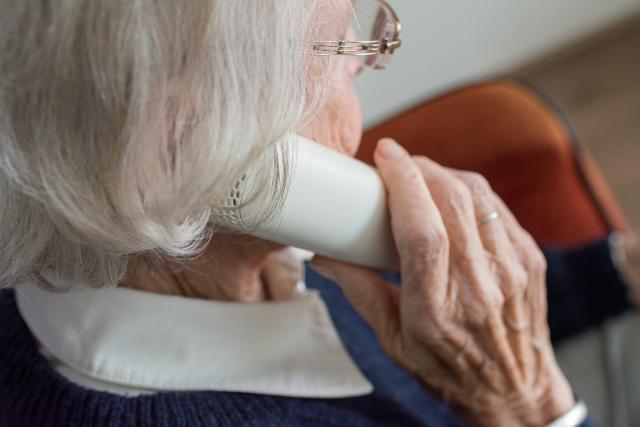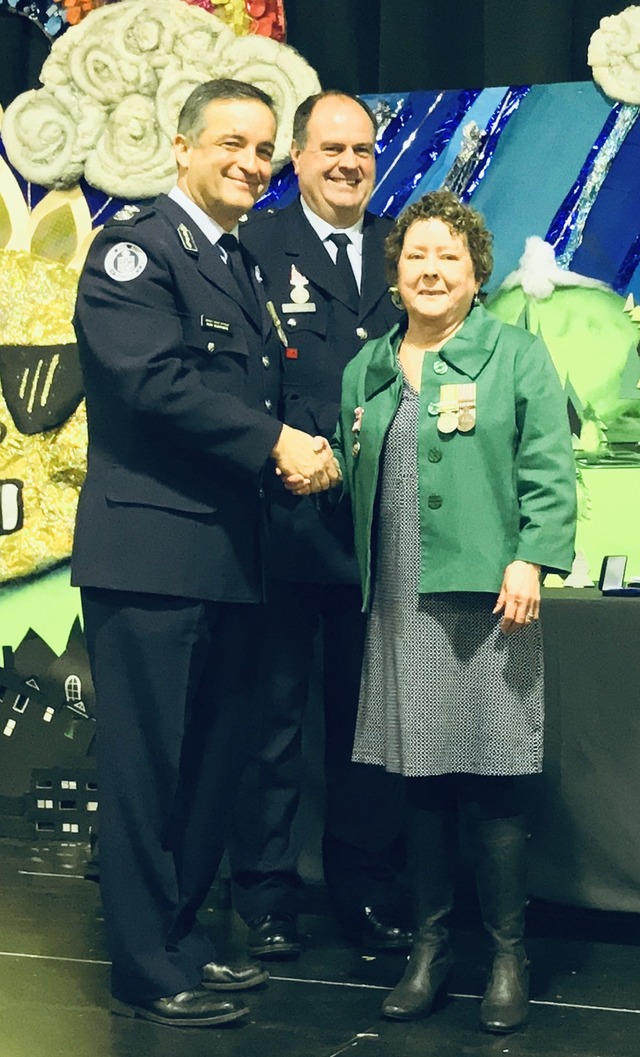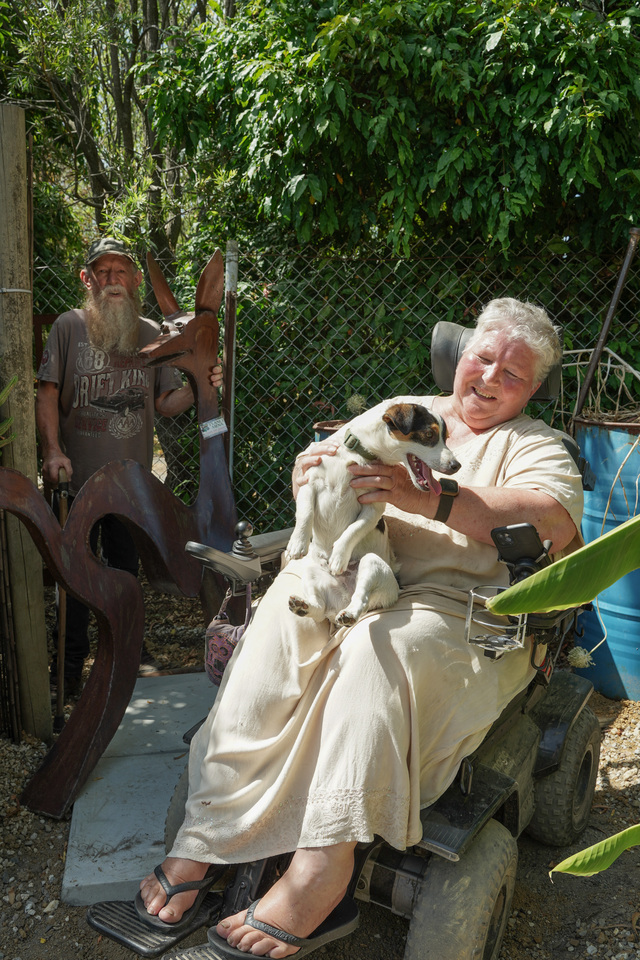A recently released independent evaluation, conducted by the Australian Institute of Family Studies (AIFS), of the National Plan to Respond to the Abuse of Older Australians 2019-2023 has deemed the program a success so far.
But it’s only a start, with the issue still a priority as Attorney General Mark Dreyfus launched a National Elder Abuse Awareness campaign on Sunday 28 July.
Eastern Community Legal Centre (ECLC) is a driving force in preventing elder abuse in the Outer East and Director of Legal Services and Principal Lawyer at ECLC Belinda Lo said they have been very concerned about the occurrence of elder abuse for many years.
“Apart from our Elder Abuse Response Programs, (ELSA and ROSE), ECLC has worked to advocate against elder abuse for decades, including working in primary prevention work to combat ageism – a driver of elder abuse,” she said.
“ECLC also convenes the Eastern Elder Abuse Network – a network of over 60 organisations in the region who work together to find ways to support people who are experiencing elder abuse.”
ELSA (Engaging and Living Safely and Autonomously) is a coordinated program with Eastern Health while ROSE (Rights of Seniors in the East) is a Specialist Elder Abuse Unit in partnership with Oonah Belonging Place.
The evaluation report highlighted the value of ECLC’s programs creating a ‘one-stop shop’ for victim-survivors of elder abuse and the community, reducing the coordination required on behalf of older people, making the process of seeking legal advice less intimidating and providing support from social workers and specialist staff to assist during the process.
Areas of improvement included incorporating education for perpetrators and improving practice, such as how staff can better support clients with ‘declining cognitive health.’
Ms Lo said ELSA and ROSE were funded to support people experiencing elder abuse by providing holistic, wrap-around services comprising diverse professionals such as financial counsellors, elder abuse advocates and community lawyers.
“ECLC is pleased the evaluation found that both programs have achieved their goals to the highest level possible and support the adaptation of the ELSA and ROSE models to other geographical locations and their continued expansion,” she said.
“The method is trauma-informed and client-centred, clients have reported that they appreciate the model and that the services were tailored to them as individuals as opposed to having to wait for referrals and then navigate the service system themselves,”
“This approach over time has led to a number of successful outcomes that are outlined in the report.”
RMIT University’s Social and Global Studies Centre partnered with the National Ageing Research Institute and La Trobe University to deliver the mid-term and final evaluations of ECLC’s elder abuse programs.
Ms Lo said people experiencing elder abuse often find themselves in what the independent evaluation refers to as the ‘impossible predicament.’
“That’s when an older person feels that they cannot continue withstanding the abuse, and at the same time are unable to see a viable option to stop the abuse from continuing,” she said.
“This can be due a range of factors including the need to maintain family relationships, a sense of shame, risks to their safety and limitations within the service system and the broader legal and policy environment which provide few options for people experiencing elder abuse.
“Whilst the evaluation found that the ROSE and ELSA programs have performed exceptionally well to achieve outcomes for survivors of elder abuse in such situations, being able to truly champion the success of programs such as these requires an understanding of the nuance of people’s lived experience.”
Examples included in the final evaluation reports of ROSE and ELSA told stories of two different clients who accessed ECLC’s services and experienced benefits;
72-year-old single parent Andrea was facing threatening behaviour from her son Don who lived with her and his friends but was worried about Don and did not want him to be homeless. With assistance from ELSA, Andrea was able to call a lawyer, draft a letter about her feelings to give to Don and organise help to maintain the property. Don’s behevour changed for the better and he moved into a sharehouse and their relationship improved as a result.
Ms Lo said common behaviours of people who perpetrate elder abuse include manipulation, controlling finances, trying to isolate the older person, coercion (pressuring them to do things) and intimidation.
“ECLC’s programs have noted that these behaviours have manifested in financial abuse (controlling an older person’s finances without their free consent, and often to the benefit of the perpetrator, not the older person), psychological abuse and physical abuse (assault, restraint, neglect),” she said.
“Signs to look out for include unexplained and unusual changes in an older person’s behaviour; fearfulness, unexplained financial transactions or the older person being unable to pay for things (when they had previously been financially independent), isolation (being controlled by people around them) and noting that someone appears worried or scared to speak for themselves,”
“Dedicating time to deliver education on elder abuse-related topics to both community members and professionals led to increased and more appropriate referrals as well as an understanding and awareness of elder abuse and related issues.”
Another example was that of mid-70s couple Michael and Linda who moved into a small unit on their daughter Samantha’s property after selling their farm to be closer to their grandchildren, support and treatment for Michael’s chronic back pain. After two years of living peacefully, Samantha’s new partner Jesse took issue with how much time she spent with her parents, whether supporting them or helping maintain the unit and tensions escalated when he moved in, reaching a point where Linda would be restricted from entering the main home and police were called and placed an intervention order against her.
With ROSE support, Linda had the intervention order overturned, had phone numbers supplied for emergency accommodation and housing support and helped her move in temporarily with her son Henry in Keilor.
Ms Lo said it’s imperative to remember that elder abuse is a community concern and not a private or family concern.
“Intervention in these situations can prevent elder abuse from occurring in the future, the experience of elder abuse can be extremely isolating and causes shame and humiliation for survivors and it is ECLC’s experience that the majority of perpetrators of elder abuse are family members,” she said.
“As a result, survivors of elder abuse are understandably reluctant to speak out about their experience for fear that their family members (often their adult children) will be punished, or that they will no longer have a relationship with their family member (or grand-children),”
“ECLC is very grateful to have the funded Elder Abuse response programs but sadly, the demand in the Eastern Metropolitan region alone far outstrips the resources allocated to it.”
















